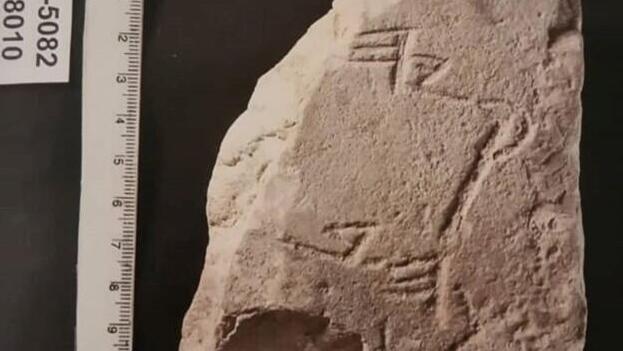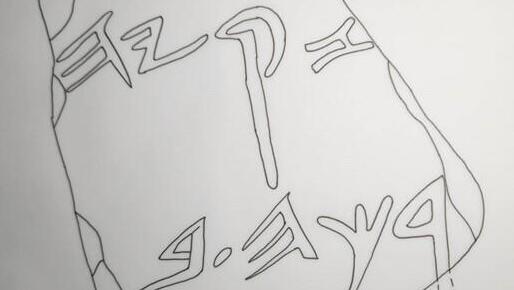Getting your Trinity Audio player ready...
Israeli researchers said Thursday they have deciphered an ancient inscription from the 8th century BC, which mentions the name and achievements of Hezekiah, the King of Judah.
The inscription was discovered at Jerusalem’s City of David National Park. It was deciphered after a ten-year research by Prof. Gershon Galil, head of the Institute for Biblical Studies and Ancient History at Haifa University, and Eli Shukron, from the Bible and Ancient History research institute.
The biblical king’s name was found partially written into the inscription, and the fragment could be filled in to read a specific part in the bible referring to Hezekiah.
The inscription, written on a stone tablet, was found over a decade ago during archeological digs near the site of the City of David National Park in 2007, headed by Eli Shukron and Ronnie Reich.
The study on the dig’s findings were published in 2008, but had no mention of the biblical figure. The inscription was found near a manmade water pool within a refuse pile filled with earthenware dated to the 8th century BC, as well as dirt and stones. The inscription was written on a limestone tablet measuring 13.5cm long and 9.5cm wide.
“It’s a very important discovery, which changes the course of the research because it was believed Hebrew kings never erected monuments in their honor, unlike other ancient eastern cultures,” Prof. Galil said.
“Jewish kings were mentioned in monuments of other cultures, like in Assyrian, Babylonian and Aramaic texts – but this is the first time where a monumental Hebrew text mentions the achievements of a king."
Eli Shukron, who was in charge of the archeological dig, said: “The Hezekiah inscription boosts the assumption that other ancient inscriptions found in Jerusalem were written during the days of, and mentioned, the king - including other inscriptions found in the City of David National Park.”



